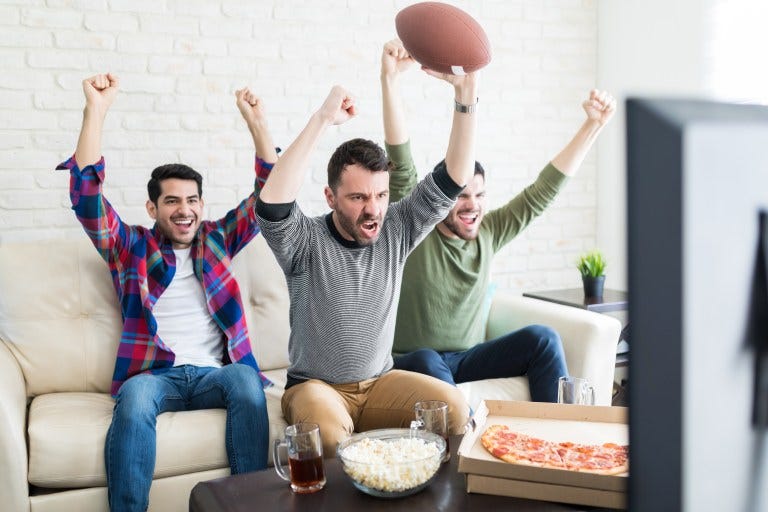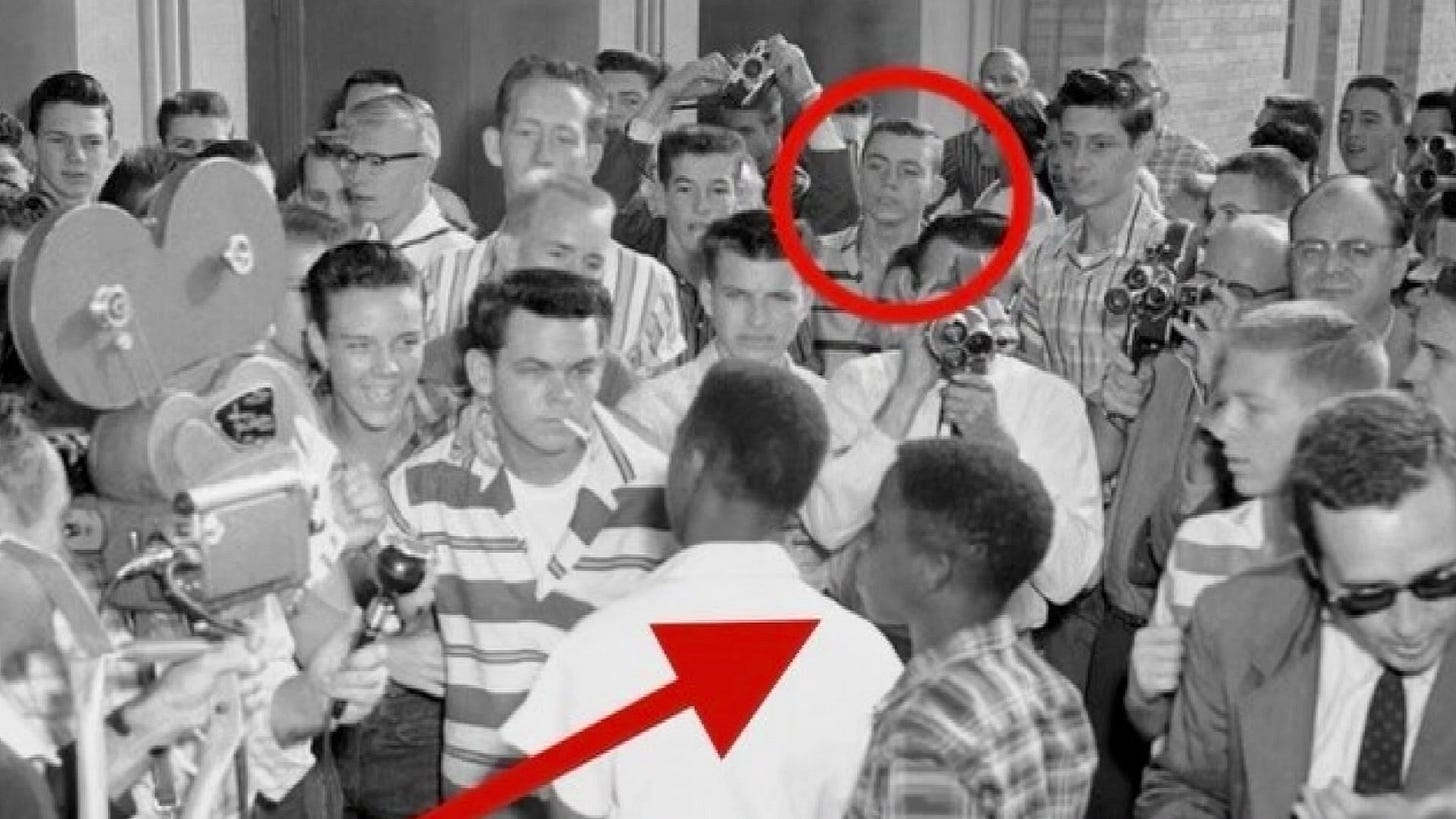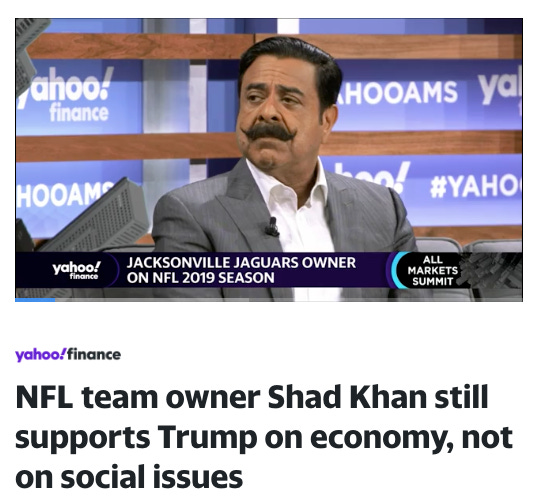The Super Bowl & Socialist Sports
Sports foster camaraderie and leisure. Socialists should champion them.
Welcome to JoeWrote, a publication that explains and explores Socialism with simple words, real examples, and a bit of humor. Subscribe to get articles delivered straight to your inbox.
Enjoy! Joe

Nothing captivates America quite like the Super Bowl. With one-third of the country watching it every year, it’s undoubtedly one of the country’s strongest social pillars.
Though many on the Left are (rightfully) frequent critiques of the NFL, Socialists would be amiss to turn away from football and other forms of sports entertainment. In fact, the cultural gravitational of the “Big Game” offers a snapshot of the values of the society we seek to create.
There’s a crisis of solitude plaguing America. 61% of young Americans report feeling “serious loneliness.” To correct this, our society needs instruments to connect with one another and build camaraderie. One powerful instrument is fandom, one of the last remaining relics of American community. Progressives would be wise to encourage something as simple as watching a football game on a friend’s couch or at a bar with strangers.
Additionally, the ability to attend or view a sporting event means the spectator is not working but is doing something for the sole reason that it brings them joy. Far too much of our culture focuses on “grinding” (a cool-sounding way to encourage Americans to work 24/7). It is crucial for the Left to champion the importance of leisure, as it illustrates how we seek to emancipate Americans from wage slavery so they can watch more football games, learn to paint, spend more time with their family, or do whatever else they want to.

Yet while these are undoubtedly good aspects of America’s favorite sport, it is difficult to separate the pros from the cons. The modern NFL is a symposium of cultural problems. It is plagued with racism, acts as a living advertisement for the military-industrial complex, and serves as yet another way for owners to get rich by stealing value from their workers (players, as well as other team employees).
Yet there is a clear path to preserve the good of the NFL while eliminating the bad — get rid of the owners.
Team Owners
There are 32 teams in the NFL, but only 31 owners*. (Some teams have multiple owners, in which case the largest shareholder is presented as the face of ownership.) The outlier is the Green Bay Packers, which are owned by Green Bay Packers Incorporated (GBPI).
Established in the 1920s, GBPI is a publicly-traded company comprised of over 5,000 shareholders. To ensure the team isn’t purchased by an individual, GBPI’s bylaws mandate that no one can hold more than 4% of outstanding shares, preserving the “fan ownership” the corporation aims for. This ownership model is unique to Green Bay, as the NFL gives it an exception to the rule that every team owner holds at least 30% of the team stake. This requirement is designed to ensure teams are owned by wealthy individuals (either on their own or in small groups), which preserves the billionaire class interests of NFL ownership.
Now, publicly traded, stock-based companies like GBPI are not Socialist. Replacing one owner with one thousand does not give workers workplace democracy, nor is it collective ownership. But what the Green Bay model does show us is that the NFL (and other sports leagues) could operate just fine without the cadre of racist, billionaire sex pests currently in charge.

The Better Way
Instead of sports teams being owned by billionaires, they should be the property of the communities they represent. For example, instead of the Jacksonville Jaguars being the property of Shad Khan, who used the value created by the players to finance Donald Trump’s inauguration, the team could be owned by the people of Jacksonville. All it would take to operate the Jacksonville Jaguars as the city’s property is a slight modification of the structure currently employed in Wisconsin.

The GBPI operates by an elected seven-member executive committee, with members appointed by the shareholders through a vote. City or state-owned sports teams could adopt this structure, swap out the private shareholders for tax-paying residents, and voila! That’s a publicly owned sports team. (Such a transition would require a financing and acquisition plan, but that goes beyond the scope of this piece.)
And though public ownership of sports teams sounds outlandish in an American context, it’s actually fairly common elsewhere. Renault, the car manufacturer and F1 racing team, is partly owned by the French government. There are many other sports organizations owned by either the public or their fans, most notably São Paulo FC, one of the top soccer teams in Brazil.
Final Thoughts
This is not to claim the public ownership of NFL teams should be a top priority for Socialists. Rather, this is an exercise in how progressive politics could improve the average American’s life with little-to-no-tradeoffs. Through a simple examination of America’s favorite sport, we have envisioned how the tenets of Socialism would better a favorable-yet-flawed pillar of American society. Public ownership of sports teams would preserve the good aspects, such as the spirit of community and the celebration of leisure, while eliminating the downsides caused by billionaire ownership, such as the rampant racism, militarism, and exploitation of players.
Life is about so much more than profit, so enjoy the game.
If you liked what you just read, please consider a premium subscription. In addition to exclusive articles and interviews, paying subscribers support this publication so I can continue to create high-quality content advocating Leftist politics.
Or if financial support isn’t an option, become a free subscriber for weekly articles and other content.


The community building aspects of sports is a valid point, however, I find the NFL to be an absolutely grotesque organization for 3 reason: 1.) The way they have covered up and downplayed the issue of how the sport inflicts traumatic levels of brain damage on the players. 2.) The way the NFL makes billions while blackmailing cities into using public funds to build them new stadiums. 3.) The way that they handled the respectful kneeling of players.
So no, I will continue to encourage everyone I know to boycott the NFL.